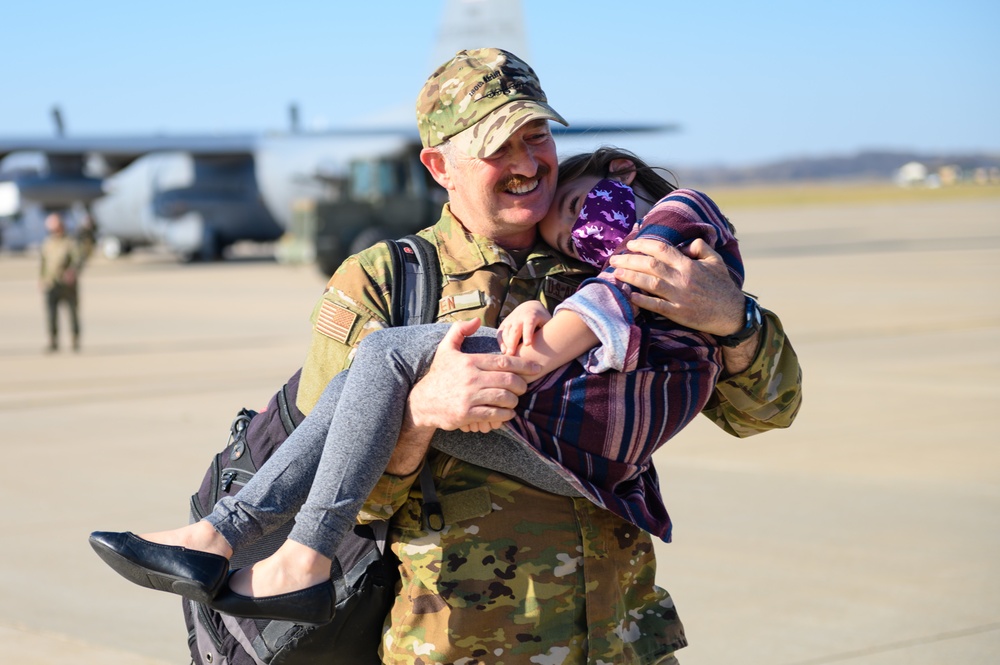Updated to reflect current events on July 20, 2022
As a military family, deployments are not far from your mind and far from the ideal family environment. Your thoughts will race and a wide range of emotions will take over when duty calls upon the service member, but what happens next?
Plan out the important things
Once word of a deployment has been received, a plan should be put in place almost right away for communication, routine adjustments, financial details, and support. Here is a list of tasks that you can prepare:
- Make a child care or elder care plan: if you need extra assistance taking care of loved ones, call for help. While your nearest relative is a good option, there may be other resources available to you through on-base assistance or through your employer.
- Update and check any finances and legalese: this includes any banking account permissions, powers of attorney, medical directives, wills, and other access to accounts or personal information. If you need any financial assistance due to hardship, check out resources on your nearest installation. (Air Force Aid Society, Army Emergency Relief, Coast Guard Mutual Assistance, and Navy-Marine Corps Relief Society). Visit your nearest JAG office as well, you can look for locations here.
- Create an emergency contact list: include phone numbers, emails, or other contact methods of command teams and The Red Cross emergency communications line and place it where it is handy.
- Discuss who will be responsible: Someone will need to be in charge of paying bills, doing the grocery shopping, or picking up the kids from school or activities.
Prepare yourself for the emotions
Families should also prepare mentally and emotionally for a deployment. Below is some tips on this aspect of your prep:
- Agree on a communication plan: do your best to establish reliable ways to communicate with each other. Plan out routine emails, phone calls, mailed letters,or video chats to the best of your ability.
- Support groups: look for groups on base or around your community. Facebook Groups relating to military life are always a good place to start, or you can check online for family resources that would fit your needs. Family Readiness Groups are also available to you, check with the service member’s chain of command for details.
- Webinars from Military One Source are also available to watch, specifically about the stages of deployment, effects of deployment on the military member and the family, and tips for navigating the choppy waters from pre to post-deployment.
- Set aside special time: take a moment to be alone with your spouse, or have a family fun date with the whole crew.
The homecoming
The day a loved one comes home is a happy one, but comes with an adjustment period. The entire family should be involved in the homecoming prep and you should be ready to face any stress or anxieties that come with reestablishing normalcy. Here are some tips:
- Express yourself: be open with your feelings and feel okay with yourself to have mixed emotions about readjusting.
- Quality time: spend more quality time with your loved one to get to know them again and make a special effort to be together as a family again.
- Watch for PTSD: be on the lookout for signals that point to Post Traumatic Stress Disorder or any other mental struggles. Some individuals may need counseling. You can find assistance through your employer’s HR department, through on base support initiatives, or through your healthcare provider.
If you or a loved one is in a crisis, please call the Suicide Prevention Hotline at the new three-digit number, 988. Please note, the previous 1-800-273-TALK (8255) number will continue to function indefinitely.
You are not alone.
Fortunately, there are many resources available to military spouses and families to aid in the time of uncertainty. Military One Source has a vast network of programs and services that you can connect with should a family member deploy. Our friends at Cohen Veterans Network have a program to help guide service members and their families through the mental and emotional struggles of deployments.


















